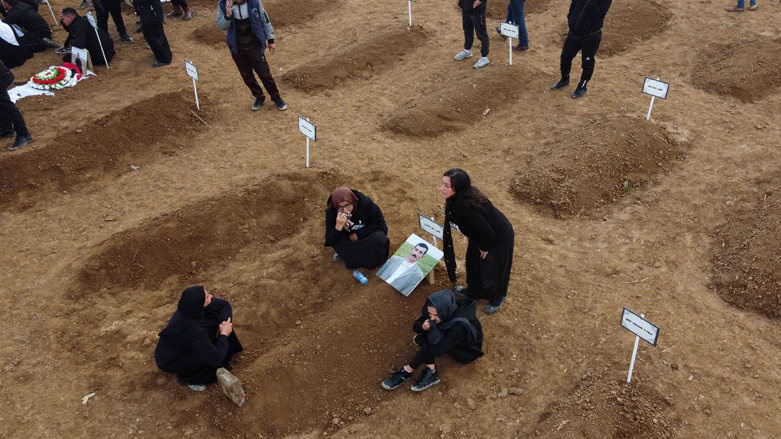Iraq will return remains of over 100 Yezidis killed by ISIS to Sinjar: Official

ERBIL (Kurdistan 24) – The Iraqi federal government plans to return the remains of more than 100 victims of the Islamic State, killed when the extremist group overran the Yezidi (Ezidi) village of Kojo in Sinjar (Shingal) in 2014 and then bury them in a special ceremony, according to a local official.
The remains were sent to a forensic lab in Baghdad after they were recovered for medical assessment and to identify the dead. So far, lab workers have completed examinations of 104 individuals.
Nayef Jaso, the administrative head of Kojo told local media outlet Kirkuk Now that "after discussions, it had been decided to return the remains to Shingal on the first of February and to bury them in the Kojo cemetery."
The decision was reached after a meeting held on Monday in the Kurdistan Region's province of Duhok in the presence of Saad Abdali, a representative of Iraq's prime minister, as well as a forensic team and a number of the victims' family members.
"The remains will be prepared in the forensic medicine department in preparation for their transfer and they will then be transferred to Baghdad's military airport and special ceremonies will be held there," said Jaso,
He went on to explain that afterward, they will all be transported to Qayyarah airport in Nineveh province before moving them to their final resting place in Shingal.
"The remains of the victims will be reburied in solemn religious ceremonies on Feb. 1," he added.
In March 2019, the first mass grave containing multiple members of the Ezidi religious community was discovered in Kojo. So far, the remains of nearly 500 have been unearthed in two phases from some 20 mass graves.
The emergence of the Islamic State and its violent 2014 assault on Shingal led to the displacement of hundreds of thousands of Ezidis, who the extremist group considers heretics. Most of them fled to the Kurdistan Region, while others resettled in neighboring countries in the region or Western states.
Others were not as lucky and remained stranded in the war zone, where they experienced atrocities and mass executions at the hands of the Islamic State for years. Militants subjected women and girls to sexual slavery, kidnapped children, forced religious conversions, executed scores of men, and abused, sold, and trafficked women across areas they controlled in Iraq and Syria.
Before the 2014 attack, there were roughly 550,000 Ezidis in the Kurdistan Region and Iraq. As the terrorist group took over large swaths of territory in Nineveh, 360,000 Ezidis escaped and found refuge elsewhere, according to the Kurdistan Region’s Ezidi Rescue Office.
So far, 69 mass graves that contain the remains of Ezidis have been discovered, along with untold numbers of individual graves.
To date, 3,537 Ezidis have been rescued from an estimated total of 6,417 kidnapped individuals in total, according to the rescue office.
Editing by John J. Catherine
